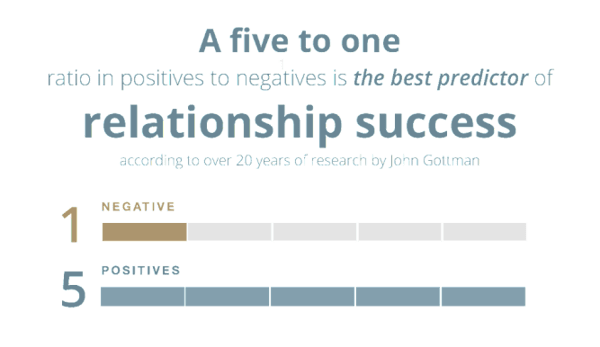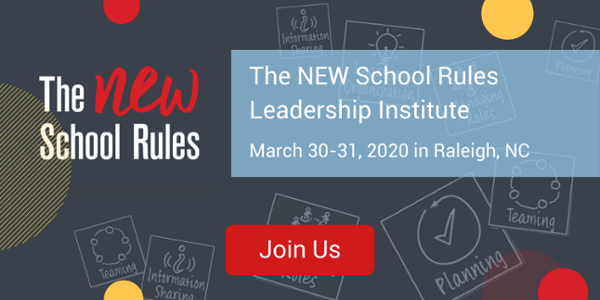
The Power of Showing Appreciation in Teams
Appreciation and showing gratitude, to ourselves and others, is powerful. The British Psychological Society shares the results of a series of experiments from Psychological Science, which concluded that “expressing gratitude might not buy everything, but it may buy more than people seem to expect.” In the study:
“Participants were asked to write a letter of thanks via email to someone who had touched their life in a meaningful way, including expressing what the person had done and how it had affected their life. Across these experiments, the participants were asked to make various predictions about how the recipient would feel and perceive them. Meanwhile, the researchers made contact with the recipients to find out how they actually felt and what they actually thought. The senders of the thank-you letters consistently underestimated how positive the recipients felt about receiving the letters and how surprised they were by the content. The senders also overestimated how awkward the recipients felt; and they underestimated how warm, and especially how competent, the recipients perceived them to be. Age and gender made no difference to the pattern of findings.”
Appreciation is important for individual relationships, but also critical for organizational and team culture. A recent article by Loeb Enterprises synthesizes trends from a ten year, 200,000 person study titled Performance: Accelerated. “Managers and employees were interviewed for the study, which centered on employee engagement and retention. The results revealed that 79% of people who left their jobs cited ‘lack of appreciation’ as their reason for leaving.”
Don’t wait to show appreciation
Many of us might know that showing appreciation and giving gratitude is powerful, both for ourselves and those around us. But this week I was reminded of exactly how important this is. Two life moments highlighted the importance of not waiting to show appreciation.
I have a client that I really love working with and had been a bit out of touch with recently. Each morning for the past few weeks I would think, I should reach out to those folks. And then inevitably something would come up, I’d get sucked into email, or get distracted, and not take action. I put off sending a simple 30 second text over and over again. And then a challenge came up with this client and instead of getting to send a text about how much I appreciated them, we were exchanging emails to work through an issue. This experience immediately took me back to my first year as teacher. I got the great advice to visit every student’s home and call every parent before right away so if an issue ever came up with that child, we would have a positive foundation to draw from. This advice is buttressed by The Gottman Institute’s research, in which they articulate the “magic relationship ratio.” While Dr. Gottman’s research is specifically about happy marriages I think the same ratio is relevant for any relationship, personal or professional.
“Their discovery was simple. The difference between happy and unhappy couples is the balance between positive and negative interactions during conflict. There is a very specific ratio that makes love last. That “magic ratio” is 5 to 1. This means that for every negative interaction during conflict, a stable and happy marriage has five (or more) positive interactions.”
The second experience that hammered home the importance of not waiting to show appreciation was significantly more personal. I found out that one of my mentors and dear friend’s cancer had progressed to the point he would be moved into Hospice. I immediately felt the weighted guilt of visits and phone calls I hadn’t made, letters and emails I hadn’t sent. I asked friends and family, many of whom have lost loved ones to cancer, what I should do. The overwhelming advice was to send a card, articulating what I appreciate about this person and sharing what he has taught me over the years. Showing appreciation, even in moments of tremendous sadness and loss, can be incredibly powerful.
The magic ratio

Image courtesy of The Gottman Institute
Start showing appreciation today
If you want to start showing appreciation, take these small steps for profound results.
- Send one note of appreciation this week to someone you’ve been meaning to thank.
- Increase your positive experience ratio + moments of appreciation using the tips in the magic relationship ratio article.
- Join me in conversation anytime at @kearaduggan.
For leadership development and more hands-on learning, join us at the New School Rules Leadership this December. Apply below!
About Keara Mascareñaz
Keara is a Managing Partner at Education Elements who focuses on how to build and scale a culture of innovation in large systems, how to create national communities of collaboration, and how to keep laughing when pursuing daunting, large-scale changes. She was lucky to collaborate with co-authors Alexis Gonzales-Black and Anthony Kim to design the website and toolkit for The NEW School Rules: 6 Practices for Responsive and Thriving Schools.





